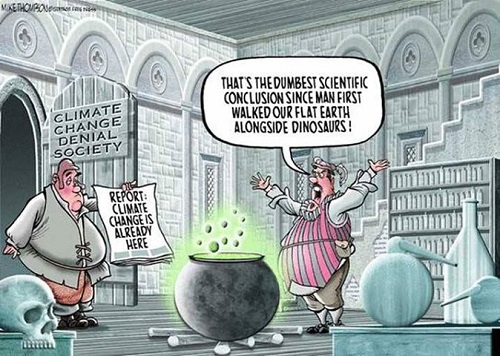
Global Warming's Missing Heat: Look Back In Anger (and considerable disbelief) by gpwayne attracted the most comments of the articles posted on SkS during the past week. Dana's Debunking 97% Climate Consensus Denial drew the second highest number of comments.

h/t to I Heart Climate Scientists
"At this point, 70 to 75 percent of Americans understand that global warming is very real, and the need to do something about it," (Bill) McKibben said. "The trick at this point is not to convert the other 25 percent. The fight is to get those who do know what's going on as active and engaged as possible."
Author warns about climate change at CA conference AP/San Francisco Chronicle, Sep 14, 2013
Seth MacFarlane Tweeted Dana's Arctic sea ice delusions strike the Mail on Sunday and Telegraph.
The Arctic Escalator was used by Climate Progress, Open Parachute, and Media Matters.
The Cook et al. (2013) 97% consensus paper was referenced in Sharman (2013), The Age, TreeHugger, and The Guardian.
Graham Readfearn at the Guardian referenced Dana's DenialGate Highlights Heartland's Selective NIPCC Science.
Graham also referenced Monckton Myths on his own blog, as did HotWhopper.
Dana's Debunking 97% Climate Consensus Denial was re-posted on The Conspiracy Index.
Greg Laden made use of some SkS graphics in debunking climate denial from CNBC's Joe Kernen.
Established in 1995, the National Center for Ecological Analysis and Synthesis (NCEAS) is a research center of the University of California, Santa Barbara and was the first national synthesis center of its kind.
There is broad acknowledgement that NCEAS has significantly altered the way ecological science is conducted, towards being more collaborative, open, integrative, relevant, and technologically informed. Different from the scientific tradition of solitary lab or fieldwork, NCEAS fosters collaborative synthesis research – assembling interdisciplinary teams to distill existing data, ideas, theories, or methods drawn from many sources, across multiple fields of inquiry, to accelerate the generation of new scientific knowledge at a broad scale.
NCEAS has helped create a large community of scientists from multiple disciplines, eager to collaborate to answer some of the toughest environmental questions facing society. Through collective Working Group projects scientists share data and methods, synthesize vast amounts of information, and discover new insights and understanding to improve lives and the environment. Some examples of the Center’s research include:
Posted by John Hartz on Sunday, 15 September, 2013
 |
The Skeptical Science website by Skeptical Science is licensed under a Creative Commons Attribution 3.0 Unported License. |